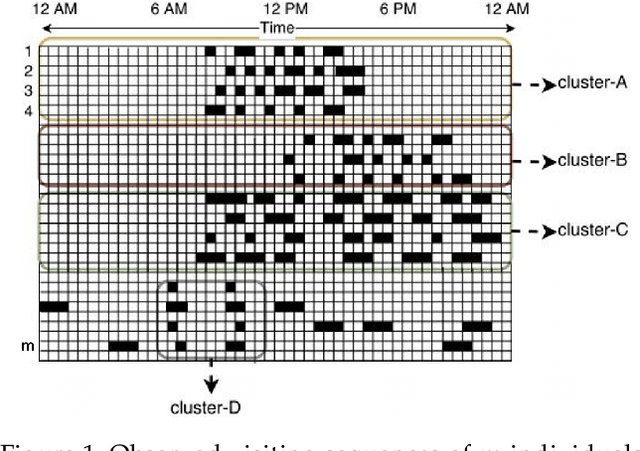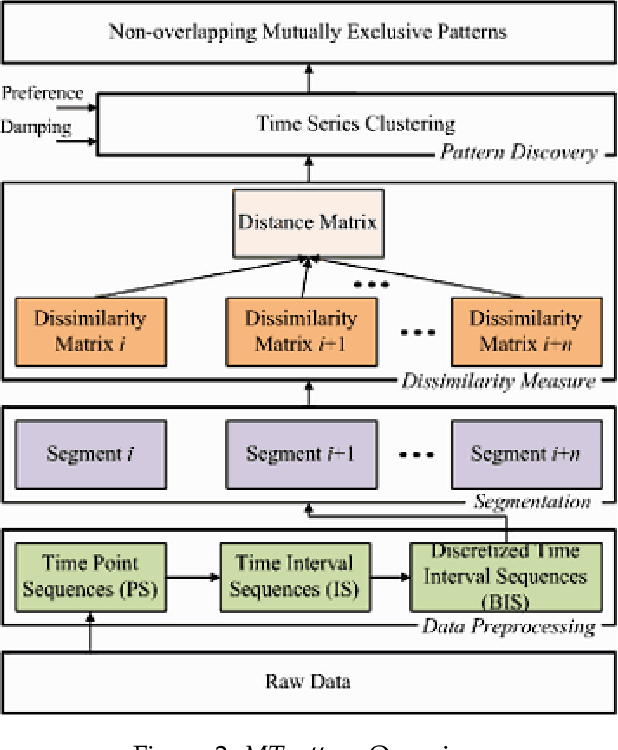Time Series Clustering for Human Behavior Pattern Mining
Paper and Code
Oct 25, 2021



Human behavior modeling deals with learning and understanding behavior patterns inherent in humans' daily routines. Existing pattern mining techniques either assume human dynamics is strictly periodic, or require the number of modes as input, or do not consider uncertainty in the sensor data. To handle these issues, in this paper, we propose a novel clustering approach for modeling human behavior (named, MTpattern) from time-series data. For mining frequent human behavior patterns effectively, we utilize a three-stage pipeline: (1) represent time series data into a sequence of regularly sampled equal-sized unit time intervals for better analysis, (2) a new distance measure scheme is proposed to cluster similar sequences which can handle temporal variation and uncertainty in the data, and (3) exploit an exemplar-based clustering mechanism and fine-tune its parameters to output minimum number of clusters with given permissible distance constraints and without knowing the number of modes present in the data. Then, the average of all sequences in a cluster is considered as a human behavior pattern. Empirical studies on two real-world datasets and a simulated dataset demonstrate the effectiveness of MTpattern with respect to internal and external measures of clustering.
 Add to Chrome
Add to Chrome Add to Firefox
Add to Firefox Add to Edge
Add to Edge